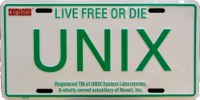Debian: switch to UEFI boot

For those interested, here is a way to install Debian and boot it with UEFI if you have an UEFI motherboard. Using UEFI with Debian requires expert knowledge so if you do not feel up to it, keep your BIOS system.
1 Background
UEFI is a specification for motherboard's firmwares which is replacing the old BIOS. For now, UEFI motherboards still include a BIOS compatibility layer.
The UEFI boot process is quite different from the BIOS one. It involves one specific piece of the motherboard's firmware, the UEFI Boot Manager, which is able to load boot loaders from FAT file systems on specially-typed partitions. It can offer a boot menu (boot: Debian from HDD, Windows from HDD, USB stick, DVD?), which can be configured from a running operating system.
So, basically, to boot a system with UEFI, you need two things:
- to install an UEFI boot loader on a FAT-formated EFI System Partition;
- to tell the UEFI Boot Manager to create an entry for that boot loader.
Des urnes électorales
L'approche d'élections en France est l'occasion de se pencher sur les caractéristiques des urnes utilisées : elles ont l'air d'objets communs, mais malgré leur conception assez simple, elles respectent des caractéristiques particulières essentielles aux garanties de secret et de vérifiabilité.
Camera with a standard USB cable?
Classified in : Homepage, Debian, Miscellaneous, Lazyweb
Since some years, there has been a movement towards standardization: mobile devices are now using Micro-USB for data transfer and charging, and SD or Micro-SD for storage extension (except Apple of course).
One piece is lacking to this perfection, however; as far as I know, digital camera producers did realize that SD won for storage, but they do not seem to have acknowledged the Micro-USB standard yet.
Now, since manufacturers and resellers do not indicate the connector type, I have no way to be sure that this is still the case. So, dear lazyweb, do you know if, by chance, there exists a compact digital camera that would use SD cards and a Micro-USB connector for data transfer and integrated charging?
“Everything is a file” rocks
Classified in : Homepage, Debian, Command line, Miscellaneous
Unix rocks, or at least one of its design feature does: everything is a file.
Here is one funny use of that feature. I consider that programs that manipulate text should basically take it on their standard input, and write it to their standard output, while specifying the name of an input or output file should be an optional refinement.
Well, at least one program was designed the other way: when used to import a foreign key, ssh-keygen -i has no option to read it on its standard input. No problem, this can be worked around:
# ssh-keygen -if /dev/stdin [paste the foreign key here]
Unfortunately, that does not work with every action of ssh-keygen since not all of them were written to be able to handle streams, which cannot be rewound.
Why “www.”?
Classified in : Homepage, Debian, To remember

Many websites have addresses that use a www.-
prefix. Some people are encouraging this
practice, other are advising against
it.
I, for one, think this prefix makes sense and is really useful, so here is an explanation of my opinion. In a nutshell: the Wold Wide Web is one Internet service among many other such as domain name, mail, mailboxes or instant messenging; using a dedicated prefix allows to distribute all these services to specific servers in a convenient way.
